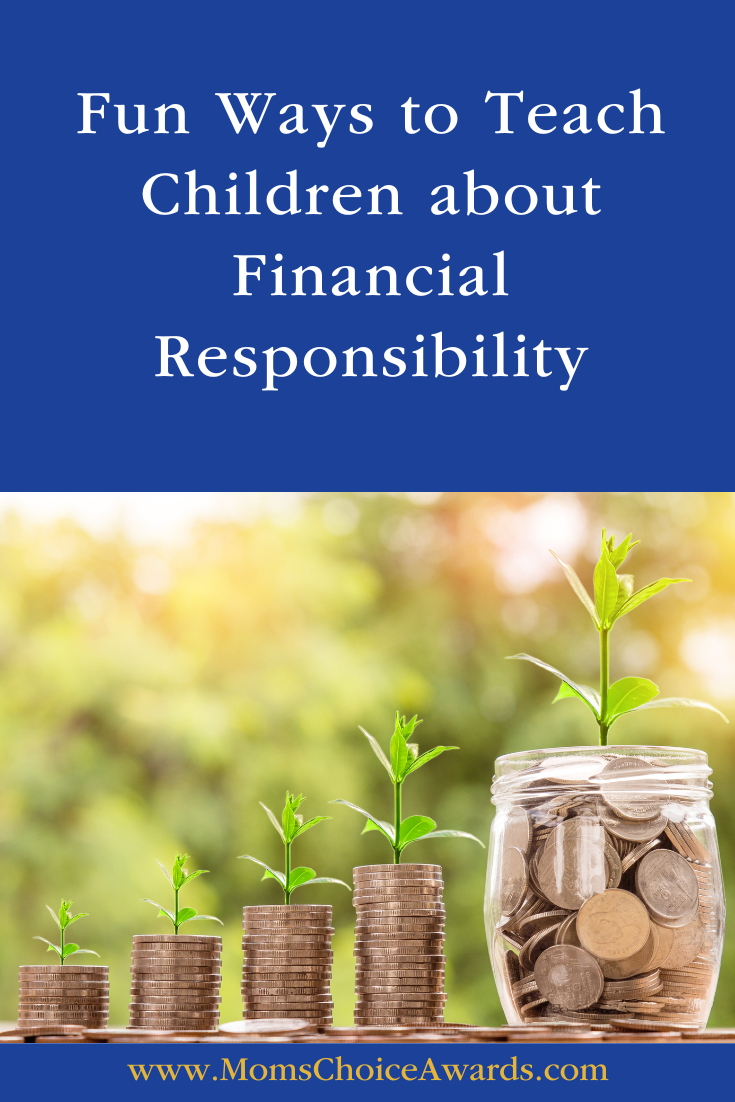 Draven Jackson
Draven Jackson
Blogger | Teacher
Twitter
We all know that money is an important part of life. There have been hundreds of songs written about the joys of having money (or the struggles of losing it), and as adults, we become well-versed in the budgeting game. However, one thing I’ve noticed as I’ve grown older is that while some people are really good at maintaining financial responsibility, others never learned the ins and outs of the finance system.
Even though children may not really have a need for money the way adults do, understanding how finances and budgeting work early in life can help prepare them later on. There are lots of ways you can instill financial responsibility and knowledge in your children while they’re still young, so here are some of our favorite fun ways to help your little one learn about money.
Use a Budgeting Activity
One way I like to help my students learn about financial responsibility is through budgeting activities. There are a lot of templates you can find online to help you make the activity, but the general idea is simple: give your children a certain amount of imaginary money that they can spend in a month followed by a worksheet that has all the “bills” and responsibilities that might come up during the month.
The bills should include stuff like rent, wifi, and the cost of different items at the grocery store – all the things that adults have to regularly consider. It can also include fun activities like eating out or going to the movies, which will test your children on whether they understand the difference between ‘needs’ and ‘wants.’ Allow them to make and rethink their budget a few times, and once they’re ready you can talk together about their budget and positive vs. negative decisions they may have made.
Implement an “Earning” System with Chores
One thing about teaching financial responsibility to your little ones is making sure they understand the value of money. The budgeting activity is a great start to this, but actually allowing them to earn and have money can help them value it more than they might if they were simply looking at numbers on paper. At home, create a system where they can earn a different allowance for different jobs – the more difficult or time-consuming the chore, the more they can earn.
Then, after they have earned their money, it’s important to allow them to spend or save their money as they choose. While it’s great to encourage them to save up for things they may want, if they choose to spend the money on seemingly meaningless items, that’s okay. This will help them better understand that once the money is gone, they’re going to have to wait for more opportunities to earn it back again if there’s something else they want.
Start a Small Business Together
 A way that I learned about financial responsibility when I was younger was by starting a small business of my own. Everyone knows about lemonade stands – an age-old business opportunity admired by children everywhere – but I set my sights on higher ventures: baking. While I was in middle school, I enjoyed baking desserts that I would advertise on Facebook for my family and friends.
A way that I learned about financial responsibility when I was younger was by starting a small business of my own. Everyone knows about lemonade stands – an age-old business opportunity admired by children everywhere – but I set my sights on higher ventures: baking. While I was in middle school, I enjoyed baking desserts that I would advertise on Facebook for my family and friends.
Social media has made earning money even easier these days, and people would message me if they wanted to buy the goods I had made. While it wasn’t much – not compared to what you make at an adult job – it did help me understand the work and determination that went into trying to earn your own money. I also found that I was more likely to save the money that I had earned than the money I was given, so it taught me early on the value of saving.
Encourage Them to Use Budgeting Journals
A personal tip that I want to give to everyone searching to improve their financial responsibility is to keep a budgeting journal. Having a ledger isn’t only good for families or businesses – I use a personal ledger every day to help me keep track of all the money coming into and going out of my bank account. I have a budget I follow that charts all my necessary spending – sectioned into bills, transportation, food, and fun – and then I use the ledger to keep track of each payment for each section.
While it may seem like a child doesn’t need to keep a budget journal of their own, you might be surprised at how helpful it can be for teaching them about money and finances. A budget journal or ledger can help them keep track of all the money they earn throughout the week, and then they can make notes about each time they spend that money (and what they spend it on). Not only will this help them better understand where their money is going, but it can also encourage them to recognize their financial priorities.
Then, as they get older, they can apply this knowledge on a wider basis to assist them in making sure they always have enough to cover their bills and their needs. Learning about money early is great for cementing positive financial habits.
Let Them Help You Shop
Not only is this a great way to set a good example for your children while teaching them financial responsibility, but it’s also a fun bonding activity! While you’re grocery shopping for the family, explain your grocery budget to your children and what kinds of necessities you need to buy during your errand. Make sure they understand that the budget has to cover everyone’s needs and wants for eating during the week.
When you’re looking at different items, let them help you choose the best options – whether that’s name-brand items or generic ones – and have them keep track of your purchases to make sure you’re staying within the budget. If there’s money left over after you’ve purchased all the necessary items, allow them to help you pick “extras” that can serve as fun snacks and additions for the family to enjoy during the week. Allowing them to help you grocery shop is a great teaching opportunity as well as a fun experience for you both!
Establish Clear Earning Rules and Follow Them
A difficult lesson your little ones will have to learn when trying to understand financial responsibility is that while money can be fun to have, it won’t stick around forever. As we all know, it seems like sometimes as soon as we make money it disappears under heaps of payments, bills, and personal needs. One way to help your children learn about money is to establish clear earning and spending rules and make sure they follow them.
By this, I don’t mean telling them how they can or can’t spend their money. Rather, if you create an earning system with chores of varying payments, make sure to stick by those and don’t simply raise and lower them randomly. Then, if they spend all their money, they will have to earn more in order to buy more things they want. This helps them to understand the real-world system in a more relaxed setting so they’re prepared when they begin working at their first jobs!
Do you have more tips and tricks for teaching little ones about financial responsibility? Tell us in the comments!
 About Draven Jackson
About Draven Jackson
Draven is an avid writer and reader who enjoys sharing her opinions on movies, books, and music with the rest of the world. She will soon be working as a teacher in Japan and hopes to use her experience to connect with other teachers and students around the globe. Draven spends most of her time at home with her family, her dogs, and her ferret.
To see more, view all posts by Draven Jackson here.






5 Comments on “Fun Ways to Teach Children about Financial Responsibility”
Some fantastic ideas! I wish I had had more education about this topic when I was growing up and still at home. Would have saved me some difficult times later in life!
These are some amazing tips.
Great tips.
Some great tips! My son’s autistic and handling money/budgeting is one of the things he struggles with
Love tgis idea and were already using some like the let them help you shop and I use her allowance as a learning tool as well